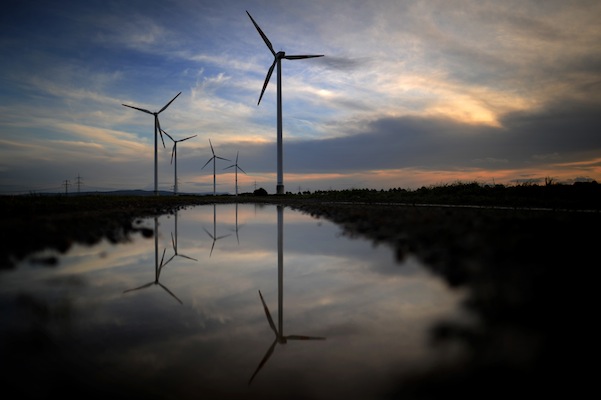The perfect news to greet a freezing Britain today — energy bills are set to take another hike thanks to a series of dodgy wind energy contracts. According to today’s Telegraph, a ‘shocking series of errors’ has resulted in deals worth £17 billion stacked in the favour of turbine manufacturers. As well as wasting taxpayers’ money, it appears the excessive costs of these contracts could be handed down to families, placing an extra strain on households at a time when family incomes are being pushed to the limit.
Who do we have to thank? Although the contracts were awarded by the coalition in March 2011, the ludicrous deals were dreamt up by one Ed Miliband:
‘Under a scheme agreed by Labour leader Ed Miliband during the last Labour government, but implemented by Coalition ministers, the contracts guarantee that the power firms will be paid even if they fail to deliver energy to households.’
So, the government will pay out the money regardless of whether their turbines do anything. Chief of the Public Accounts Committee Margaret Hodge has described the situation as a ‘license for the private sector to print money at the expense of hard-pressed consumers’. The Energy department has reluctantly admitted they will have to ‘re-examine some of the terms’ but since the contracts were signed nearly two years ago, it’s difficult to see how taxpayers can avoid having to stump up for DECC’s failings.
The cost of living remains a particular troublesome area for the government. According to the Telegraph, energy bills have rocketed to £1,300 per year per household, thanks mostly to rising gas prices. Plus, as Isabel reported last year, the average disposable income is at its lowest since 2003. The last thing public needs is an extra burden on their bank balance. The latest deal brokered between the Lib Dems and Tories over renewable energy has already bumped up bills, but Hodge has warned the repercussions from this faux pas may also be passed down:
‘Not only is it unlikely that this new licensing system for bringing electricity from offshore wind farms onto the national grid will deliver any savings for consumers, it could well lead to higher prices’
None of this has halted the government’s quest for wind energy, which at the last poll, is something the public still favour. The report suggests the government’s target for producing 15 per cent of energy by wind is only achievable through another £8 billion of infrastructure investment. Hopefully for this next round of green investment, the government’s energy odd couple (Ed Davey and John Hayes) will ensure value for taxpayers is at the top of their agenda.





Comments